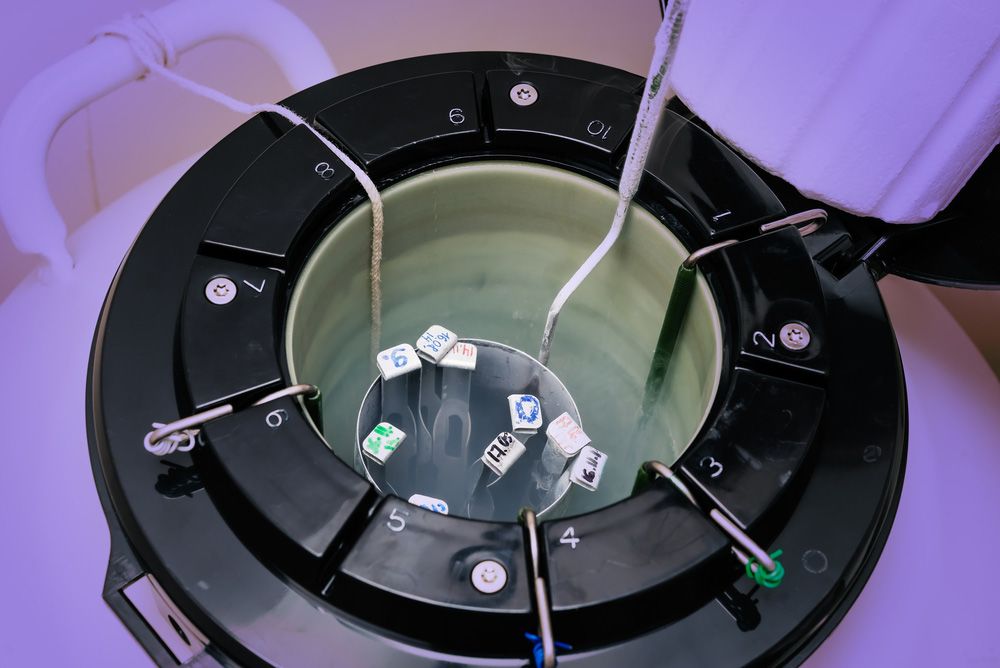IVF after Age 40
 Today, it is common for people to put off starting a family, as they choose to spend time building careers and enjoying life experiences. When people wait until later in life to have children, they may struggle with fertility issues.
Today, it is common for people to put off starting a family, as they choose to spend time building careers and enjoying life experiences. When people wait until later in life to have children, they may struggle with fertility issues.
At the Heartland Center for Reproductive Medicine, we offer many fertility treatments to assist patients in overcoming fertility problems. One of our most widely used treatments is in vitro fertilization, or IVF.
IVF is an assisted reproductive technique that oversees all stages of conception. We are frequently asked by our Omaha, NE patients if they can undergo IVF after age 40. Here we discuss some of the factors that can affect the success of IVF after 40, as well as the options available to increase treatment success rates.
IVF and Egg Quality
IVF treatment involves stimulating ovulation, retrieving eggs, and fertilizing them in a laboratory setting. IVF success depends largely on the quality of eggs that are retrieved during IVF treatment. If an egg has chromosomal abnormalities, it is unlikely to result in a viable embryo. Since only healthy and viable embryos are selected for the embryo transfer process, IVF treatment is less likely to be a success if a woman’s eggs have diminished in quality.
IVF and Egg Quantity
Although it is not as important as egg quality, the quantity of a woman’s eggs also impacts IVF success rates. The more eggs that a woman has in her ovarian reserve, the more that will be released during ovarian stimulation. Multiple eggs means multiple chances for viable embryos, which ultimately increases the chances of a successful IVF cycle for our Omaha patients.
Are There IVF Age Limits?
Age plays a large role in IVF success, because both the quality and quantity of a woman’s eggs diminishes as she ages. Since IVF success rates drop pretty significantly after the age of 40, our patients may wonder if there is an age limit for IVF treatment.
There is no standard IVF age limit, because fertility can be affected to different degrees in different people. Whether a person is a good candidate for IVF treatment ultimately comes down to the quality and quantity of their own ovarian reserve. However, in general terms, we typically do not recommend that a woman undergo IVF treatment with her own eggs past the age of 45.
Increasing IVF Success Rates After Age 40
If our Omaha patients are interested in undergoing IVF treatment beyond the age of 40, there are techniques that can increase the chance of a successful treatment.
The first option is to undergo IVF treatment using frozen eggs or embryos. When eggs or embryos are frozen, they are cryogenically preserved, so they remain high quality. The age of a woman’s uterus has little impact on the success of IVF treatment, so frozen eggs or embryos may allow women to conceive through IVF treatment well into their 40s, or possibly beyond. Of course, this does require advanced planning, so women who want to have children later in life should consider the benefits of freezing their eggs.
Another option for IVF after 40 is an egg donor. An egg donor can provide multiple eggs that are of high quality, while still giving our patients the opportunity to carry the baby themselves. High quality donor eggs make it much more likely that IVF can be a success for patients past the age of 40.
Learn More
If you are approaching the age of 40 and are interested in learning more about the fertility services available to you, the team of doctors at the Heartland Center for Reproductive Medicine would be happy to provide you with valuable information. Send a message to our team of fertility specialists or call (402) 717-4200.






